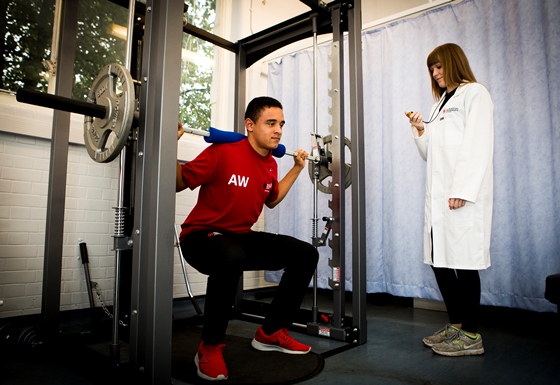More volunteers are being sought for a study which aims to find out the effect of regular exercise in helping manage diabetes.
Academics at De Montfort University Leicester (DMU) are examining how a combination of weight training and cardio workouts can help people with type 1 or 2 diabetes to manage their blood glucose better. Those people at risk of developing the disease such as those with a family history would also be suitable for taking part.

This is the first time academics have looked at the effect of the particular combination of cardio and resistance exercise at moderate intensity.
Volunteers complete two 90-minute sessions a week, over six weeks in a exercise laboratory with one to one guidance in the laboratory in Hawthorn building, which is kitted out with a recumbent bicycle and a multi-gym weight machine. The intensity of the exercise is moderate and assessed as safe for volunteers.
Students with diabetes who are taking part in the study said that the exercise regime has helped steady their HbA1c levels – a long term indicator of the body’s blood glucose levels. With elevated readings, there is a greater the chance of developing diabetes-related complications.
Second year English and Media student Aaron Wilson, 19, has type 1 diabetes and has been volunteering on the project since November 2014. “I used to exercise but it was not so well organised, and doing this has definitely made a difference.”
Mark Rankin, 18, first year Computer Science student, found out about the study on social media and signed up. He said: “It has kept my HbA1c levels balanced and it’s keeping me fit at the same time.”
Volunteers must be aged between 18 and 60 with either type 1 or 2 diabetes, or at risk of the condition. Baseline measurements of weight, percentage of body fat, cholesterol and BMI are taken prior to the exercise regime beginning. People with certain medical conditions will not be eligible to take part.
Professor Joan Taylor, who is leading the project, estimated that around 1,000 people on the DMU campus would be eligible for the trial.
Posted on Thursday 4 February 2016